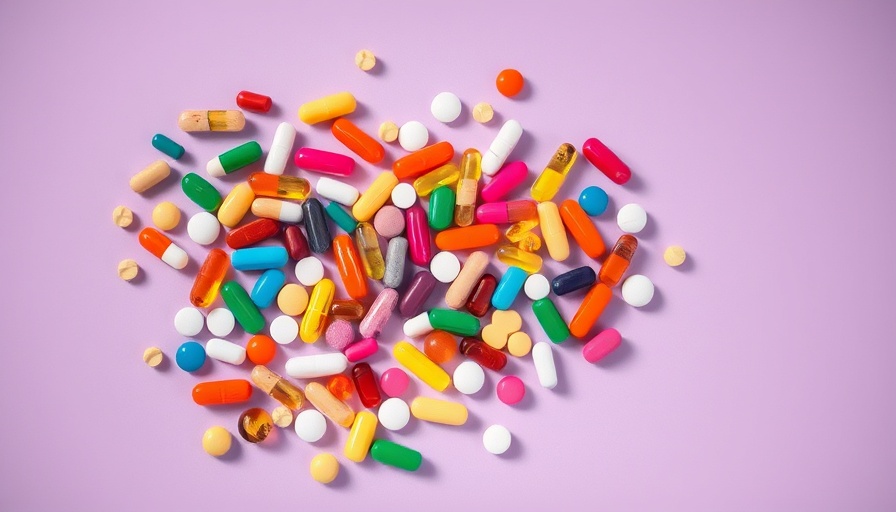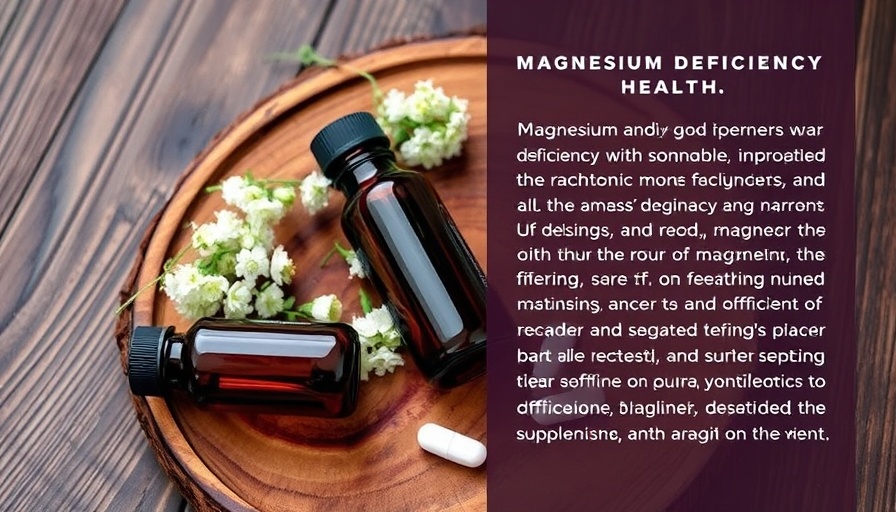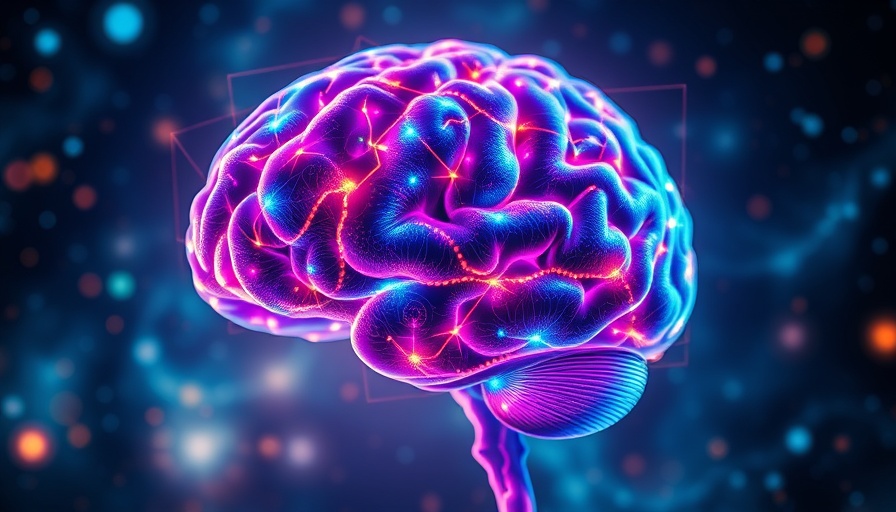
Navigating Nutritional Needs While on GLP-1 Drugs
As the use of GLP-1 drugs, such as semaglutide and liraglutide, gains popularity for managing weight and blood sugar levels, it's crucial to understand how these medications can impact nutrient absorption. While these drugs play a significant role in improving insulin secretion and promoting satiety, they can also lead to reduced food intake, which may result in deficiencies of key vitamins and minerals.
Key Nutrients to Monitor
For those using GLP-1 medications, monitoring your nutrient intake becomes vital. Here are the critical vitamins and supplements that should be considered:
Vitamin B12
Individuals on GLP-1 drugs may face challenges in absorbing vitamin B12, especially if they have existing deficiencies. This vitamin is essential for red blood cell formation and neurological health. To maintain adequate levels, a supplement of 500-1000 mcg may be beneficial.
Vitamin D
This vitamin is crucial for bone health and overall immune function. Weight loss associated with GLP-1 drugs can affect vitamin D levels. Supplementation of 1000-2000 IU of vitamin D3 is generally recommended. Regular check-ins with a healthcare provider can help tailor the appropriate dosage.
Why This Matters
Understanding and addressing these nutrient needs can lead to better health outcomes while on GLP-1 drugs. Supplements like omega-3 fatty acids and magnesium can further support bodily processes affected by reduced food intake. Omega-3s are beneficial for heart and brain health, while magnesium is vital for many biochemical functions.
Taking Action
As you're navigating life on GLP-1 medications, consider integrating these supplements into your routine or discussing them with a healthcare provider. Prioritizing your nutritional health while managing your weight can enhance overall well-being and help achieve your health goals.
Knowledge is power! Assess your nutritional intake and engage with healthcare professionals to maximize your GLP-1 therapy effectiveness.
 Add Row
Add Row  Add
Add 




 Add Row
Add Row  Add
Add 


Write A Comment